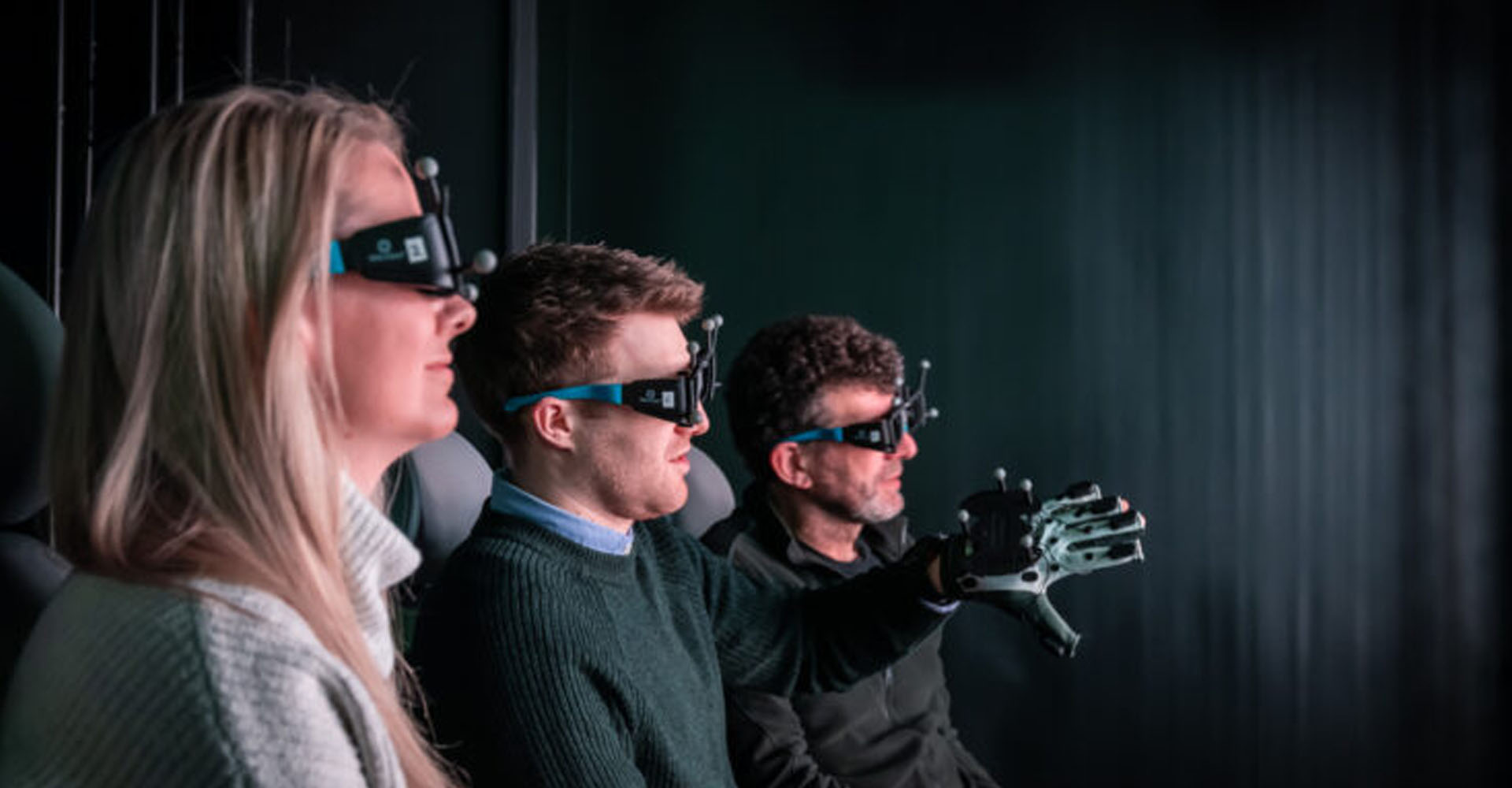State-of-the-art virtual reality, modelling and simulation facilities can have a transformative impact on the operations and competitiveness of industrial companies but they remain very expensive and out of reach for most SMEs.
Our Virtual Engineering Centre (VEC) was established in 2009 to deliver industry-accessible digital testbed facilities, alongside the necessary associated user expertise, to allow SMEs to become part of original equipment manufacturer (OEM) digital supply chains, boosting economic growth and productivity.
Building upon our engineering strengths in aerospace-related modelling and simulation, the VEC was created as one of the first digital accelerator test-beds, for the development, testing and demonstration of new digital technologies, targeted towards industry.
Our VEC researchers have maximised the benefits of increasing the adoption of digital technology through industrial interventions across the Liverpool City Region and the UK. These interventions have created positive economic, productivity and training impacts.
Sellafield have adopted a virtual reality (VR) simulation environment that was developed by the VEC to train and ensure the safety of the specialist operators of its recently commissioned nuclear waste removal facility. A significant operational cost reduction was achieved, with adoption of the simulator saving £20 million by freeing-up physical training infrastructure for operational use.
Our work also led to risk reduction for both the business and the individual operator by enabling workers to practice their skills in a virtual world, prior to operating in the real world.
Through the ERDF part-funded LCR4.0 project, the VEC has supported the industrial digitalisation of SMEs within the Liverpool City Region. Using outputs from our research and facilities, the LCR4.0 project, and follow-on initiatives in both LCR and Cheshire & Warrington regions led by the VEC, have enabled 800 SMEs, including 60 start-ups, to access support for growth and has delivered 170 new products to market.
LCR4.0 was also identified in the Made Smarter Review in 2017 as a best practice initiative and included in the Financial Times Top 100 digital projects in Europe in 2018.
In collaboration with Bentley Motors, the VEC co-led the STRIVE R&D project which used virtual tools to deliver a new digital supply chain to develop globally competitive products for Bentley. This resulted in a reduction in time to market for four new Bentley products from 54 to 48 months, whilst enhancing build quality.
Our approach of developing and proving new processes and technologies in an agile but low-cost environment has since been replicated widely, both across the UK and globally.
View our PDF to read more about our research with impact.
Back to: School of Engineering
